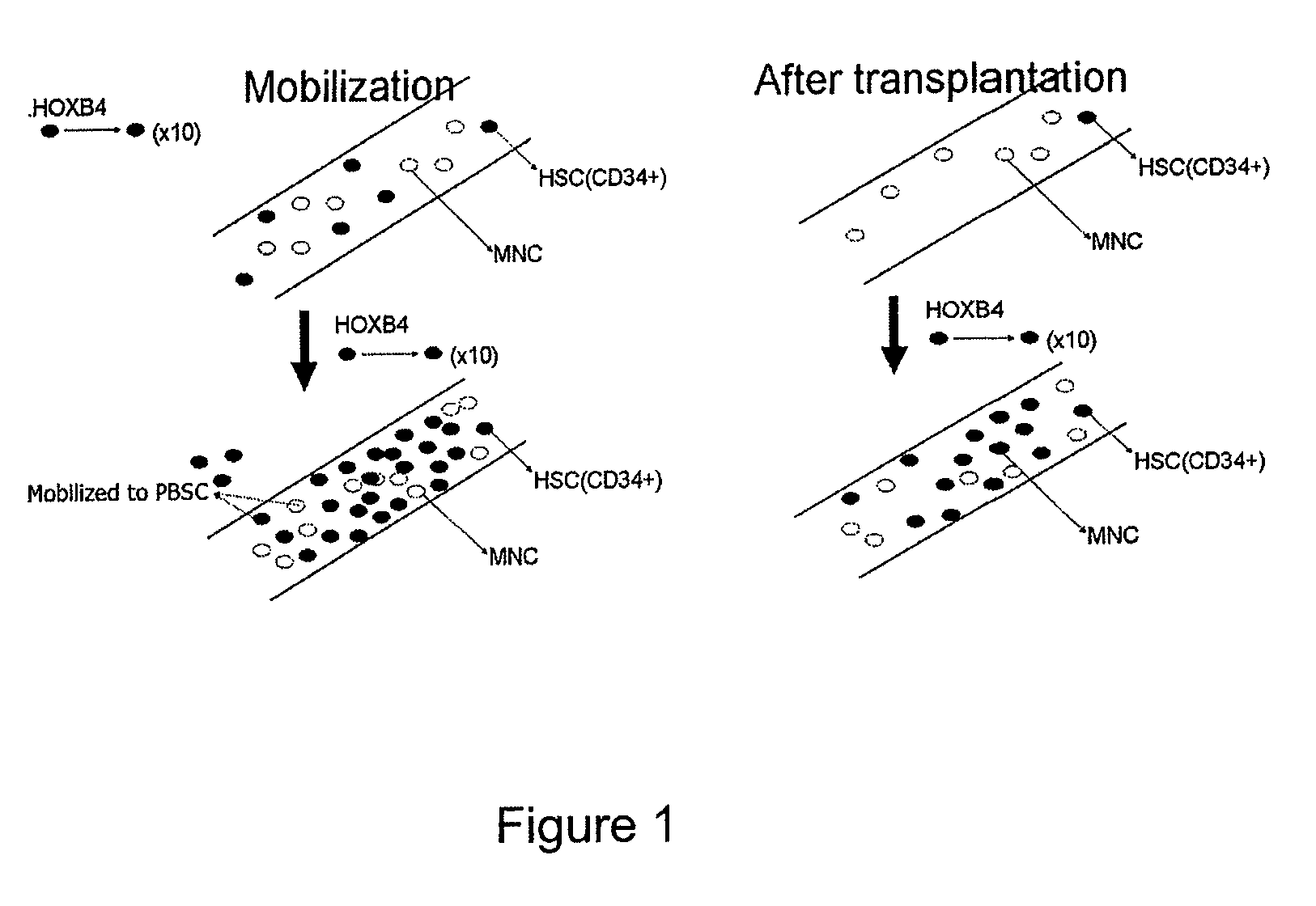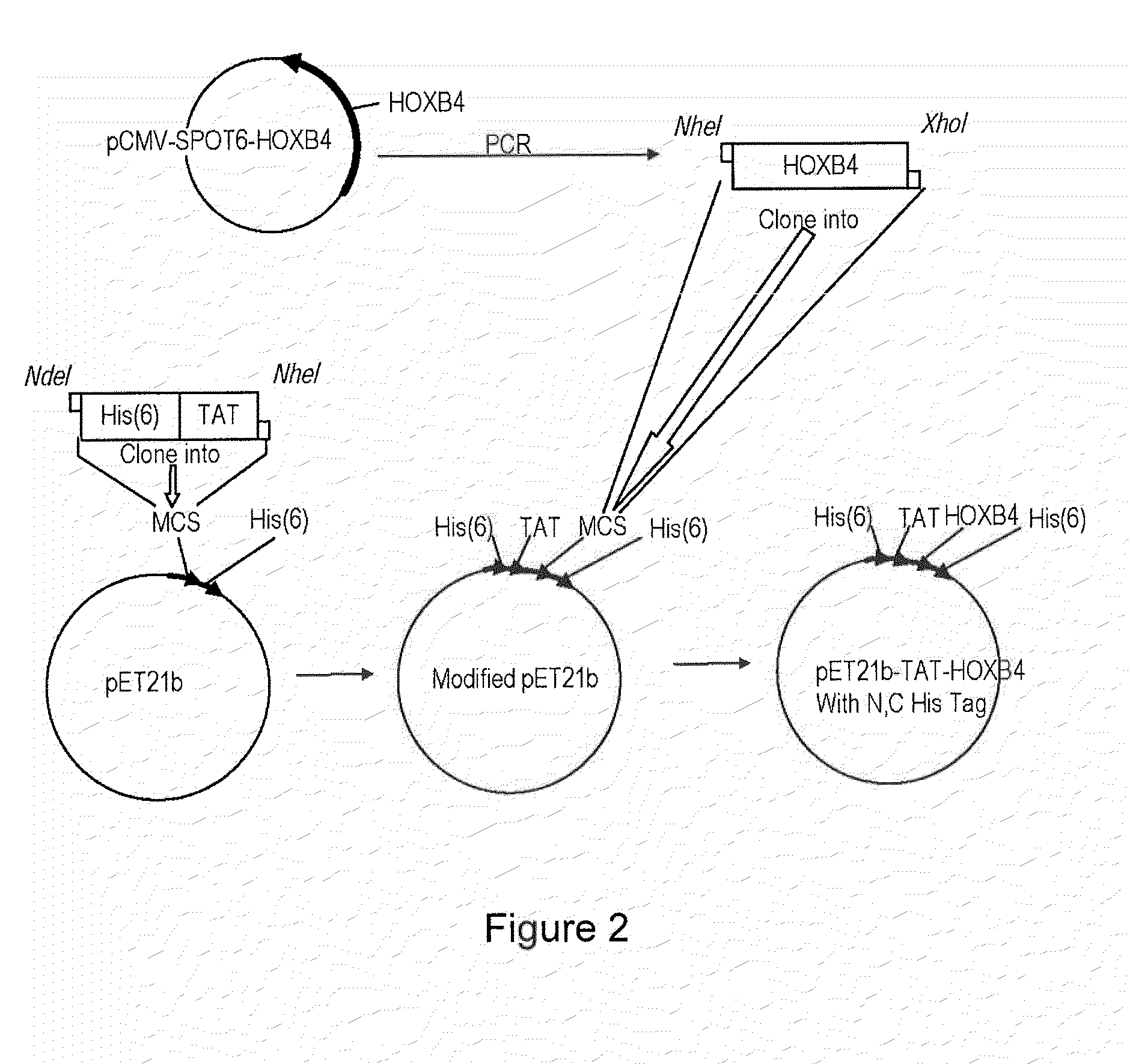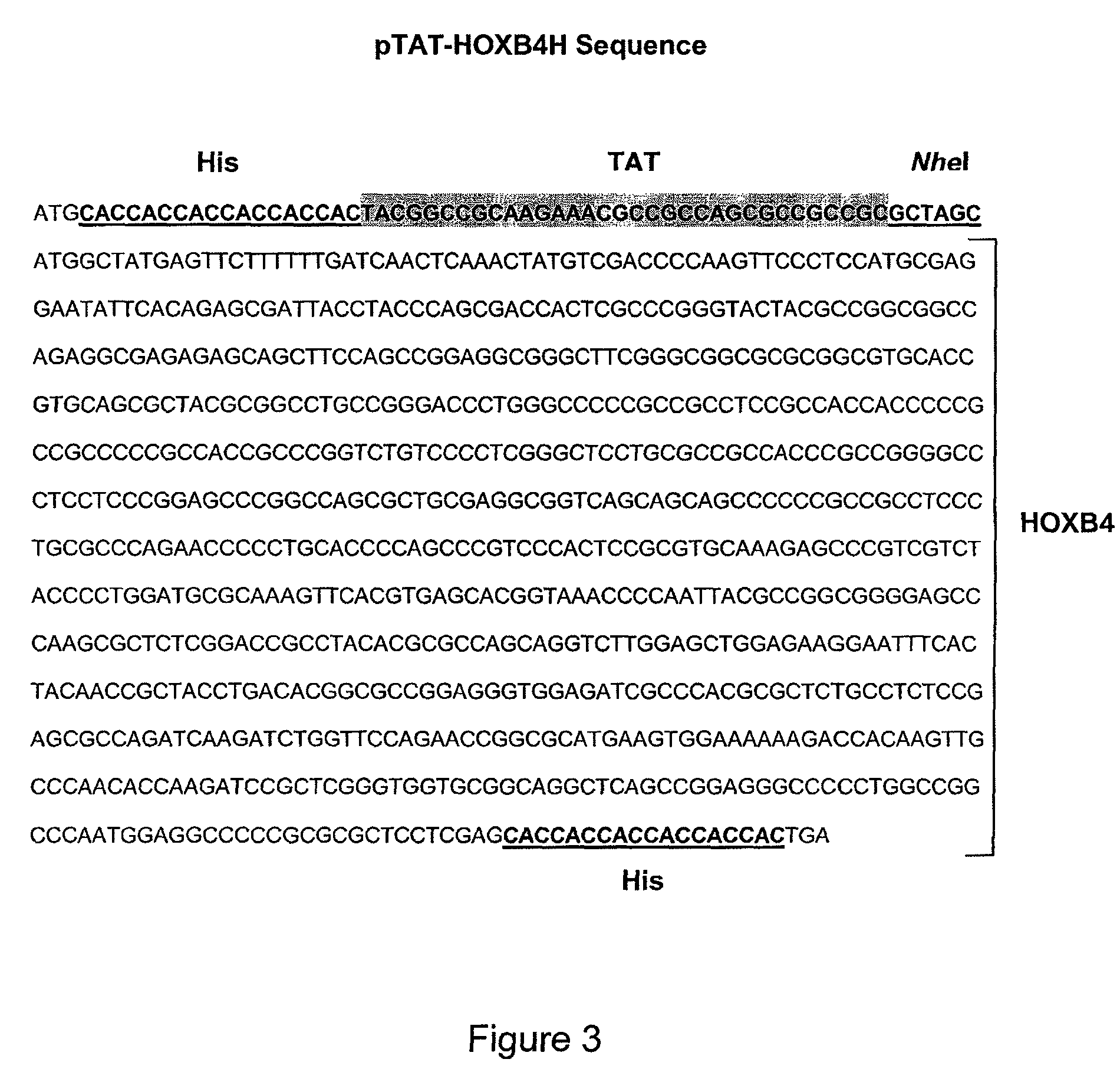Method of producing TAT-HOXB4H
a technology of tathoxb4h and tathoxb4h, which is applied in the field of producing tathoxb4h, can solve the problems of large amount of hscs, large number of hscs, and inability to efficiently transplant hscs, and achieves the effect of increasing the number of hscs and high yield and stability
- Summary
- Abstract
- Description
- Claims
- Application Information
AI Technical Summary
Benefits of technology
Problems solved by technology
Method used
Image
Examples
example 1
Construction of Plasmid pET21b-His-pTAT-HOXB4-His
[0091](a) The Modification of pET21b Plasmid Containing N- and C-terminal His Tag and TAT Signal Peptide.
[0092]The expression vector pET21b containing N-terminal His tag and a TAT signal peptide was generated by inserting oligonucleotides 5′-TATGCACCACCACCACCACCACTACGGCCGCAAGAAACGCCGCCAGCGC CGCCGGCG-3′ (sense) (SEQ ID NO: 1) and 5′-CTAGCGGCGCTGGCGGCGTT TCTTGCGGCCGTAGTGGTGGTGGTGGTGGTGCA-3′ (antisense) (SEQ ID NO: 2) into pET21b plasmid. The C-terminal His-Tag is already present in the pET21b vector.
[0093](b) Cloning of HOXB4 into Modified pET21b Expression Vector
[0094]A DNA fragment containing the open reading frame (ORF) of HOXB4 and additional 6 histidine (SEQ ID NO: 5) coding sequence was obtained by PCR amplification using plasmid MGC54130 (GeneDiscovery, Taipei, Taiwan. Cat. No. 5533346) as the template, and the PCR-generated HOXB4 cDNA fragment was subcloned into the modified pET21b expression vector. Plasmid construction and nuc...
example 2
Expression of Recombinant TAT-HOXB4H Protein in E. coli
[0095]The pET21 b-His-TAT-HOXB4-His expression vector was transformed into E. coli strain BL21(DE3)pLysS (Novagen). The transformed cells were grown overnight at 37° C. The overnight-grown cultures were diluted to an initial OD600 of 0.05. The cultures were then grown to an OD600 of 0.5 at 37° C., induced with 1 mM isopropyl-beta-D-thiogalactopyranoside (IPTG) at 37° C. for 3 hr, with vigorous shaking.
example 3
Purification of Recombinant TAT-HOXB4H Protein
[0096]Following induction, cells were harvested by centrifugation and resuspended in Buffer A (8 M Urea, 20 mM HEPES, 0.5 mM DTT and 100 mM NaCl, pH 8.0). The cell suspension was passed three times through a French press, and the cell lysate cleared by centrifugation at 20,000×g for 30 min at 4° C., adjusted the supernatant to 10 mM imidazole and loaded on the chromatography chelating columns for purifying histidine-tagged proteins (Amersham Pharmacia). Bound proteins were eluted with 50, 100 and 250 mM imidazole in buffer A. TAT-HOXB4H containing fractions were loaded on a cation ion exchange chromatography column in Buffer B (4 M urea, 20 mM HEPES and 50 mM NaCl, pH 6.5), eluted with 1.5 M NaCl and 20 mM HEPES (pH 8.0).
PUM
 Login to View More
Login to View More Abstract
Description
Claims
Application Information
 Login to View More
Login to View More - R&D
- Intellectual Property
- Life Sciences
- Materials
- Tech Scout
- Unparalleled Data Quality
- Higher Quality Content
- 60% Fewer Hallucinations
Browse by: Latest US Patents, China's latest patents, Technical Efficacy Thesaurus, Application Domain, Technology Topic, Popular Technical Reports.
© 2025 PatSnap. All rights reserved.Legal|Privacy policy|Modern Slavery Act Transparency Statement|Sitemap|About US| Contact US: help@patsnap.com



